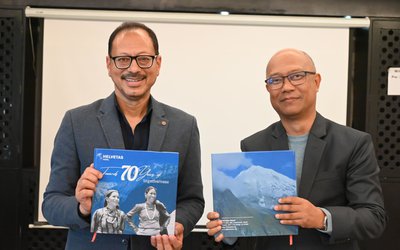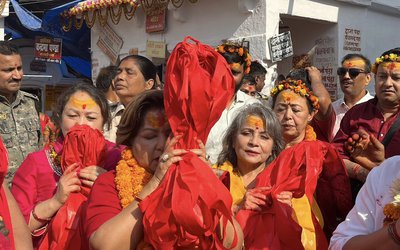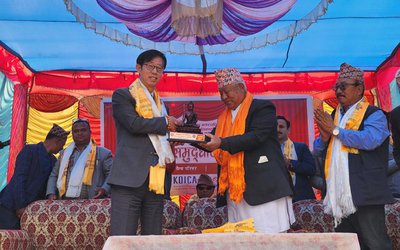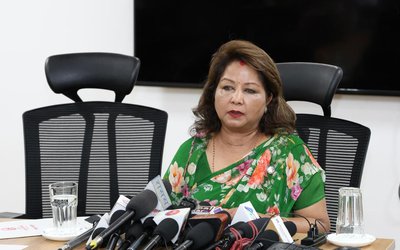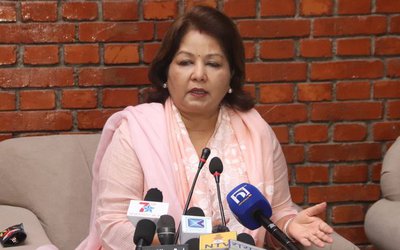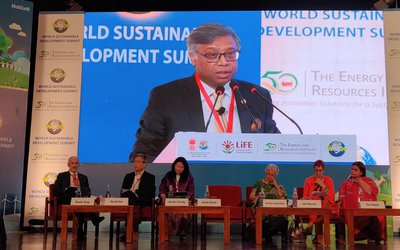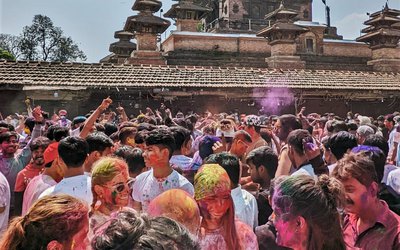
From health to education, drinking water to sanitation and livelihood to disaster preparedness, the INGOs have been supporting a range of development activities undertaken by the local NGOs and helping uplift the livelihood of the needy, excluded population of Nepal.
However, only a few takers recognize the role and contributions of the INGOs. Government officials, the media people and politicians, all tend to portray the INGOs in a negative light without understanding the proper functioning of the INGOs in Nepal.
According to the Social Welfare Council Act, all INGOs need to register with the Social Welfare Council and the INGOs implement the programs with approval from the SWC. All INGOs also submit their expenditure and annual program to the council.
Despite such mandatory legal provisions, even the recently published Good Governance Action Plan directed the Ministry of Finance and the Ministry of Women, Children and Social Welfare to bring all INGOs under one window policy and make their annual expenditure transparent.
The Social Welfare Council Act 1992 has made it mandatory for INGO to sign the General Agreement before launching projects or programs in Nepal. With a membership of 101, the Association of International NGOs in Nepal (AIN) has been formed to collectively raise the voice with these concerns.
People working in the INGOs agree that there is a possibility of irregularities happening in some INGOs but they say it is not true that all INGOs are bad. Recently, the Social Welfare Council reportedly was working to take action against 40 INGOs registered in Nepal.
"We cannot say anything about those INGOs which are not the members of AIN. Out of 270 registered INGOs, only 101 or 40 percent are the members of AIN,” writes Ashutosh Tiwari, chair of AIN, in his Facebook wall.
All AIN members are following the laws and regulations in Nepal and submitting their annual report and expenditure to SWC as per the law. As the Social Welfare Council is the regulatory body for all INGOs, the INGOs have been submitting their annual expenditure to the SWC.
Along with raising awareness level of people on social issues like gender based violence, the INGOs have also contributed in other sectors. The INGOs annual contribution in development sector is around 7 to 9 percent.
“Out of 270 INGOs registered in Nepal, an overwhelming number of INGOs have been effectively working in various sectors helping local NGOs to carry out development activities at the local level,” claimed Madan Rimal, senior official at SWC.
Act Provisions
Social Welfare Act, 2049 (1992) Clause 15 talks about the permission and agreement. According to Clause 15(1), any foreign non-governmental organization, if it desires to work in Nepal, will need to submit an application to the council for permission before starting its work.
Sub clause 3 says the permitted foreign non-governmental organization shall have to reach an agreement with the council.
Clause 19 of the act relating to economic assistance says social organizations and institutions willing to get material, technical, economic or any other kind of assistance, either from Nepal Government or foreign countries, international social organizations and institutions or missions or individuals, shall submit a project proposal and application along with details to the council as prescribed.
Under the yearly assistance of two hundred thousand rupees for the project, that is to be finished immediately or may take only giving prior notice to the council and after the completion of the said work, a report should be submitted to the council, within the period of three months.
While providing economic assistance to the approved projects by the foreign organizations, assistance shall be channelized through the commercial banks operating within Nepal.
Similarly, the clause 26 specifies the need to submit an annual report. Clause 26 (2) says social organizations or institutions affiliated with the council should submit audit report, to the council within the period of six months after the completion of fiscal year along with the details descriptions of their work and activities.
Clause 21 account and auditing: The clause 21(2) says the Audit of the Council shall be carried by the department of Auditor General. The sub clause 3 says account and auditing of the social organizations, affiliated with the council shall be as prescribed. As a regulatory authority, the Council, if it so wishes, inspects or causes to inspect the accounts documents, along with cash and kind, of the social organizations and institutions affiliated with the council at any time.
At a time when there is a huge gap in carrying out the development activities at the local level in the absence of elected representatives at the local level, Nepal’s over 200 INGOs have been making a lot of difference. In the absence of local elected representatives, the INGOs are filling the gap by supporting local NGOs to carry out development activities targeting marginalized and vulnerable population.
- ADB’S CHIEF ECONOMIST: Nepal Reduces Poverty
- Mar 11, 2025
- FM DR. DEUBA: A Successful Visit
- Mar 11, 2025
- MD GHISING: Target Of Personal Grudge
- Mar 09, 2025
- UPPER TRISHULI-1 HYDROPOWER: Supporting Community Development
- Feb 24, 2025
- ADB POWERING NEPAL: Five Decades Of Support
- Feb 24, 2025
